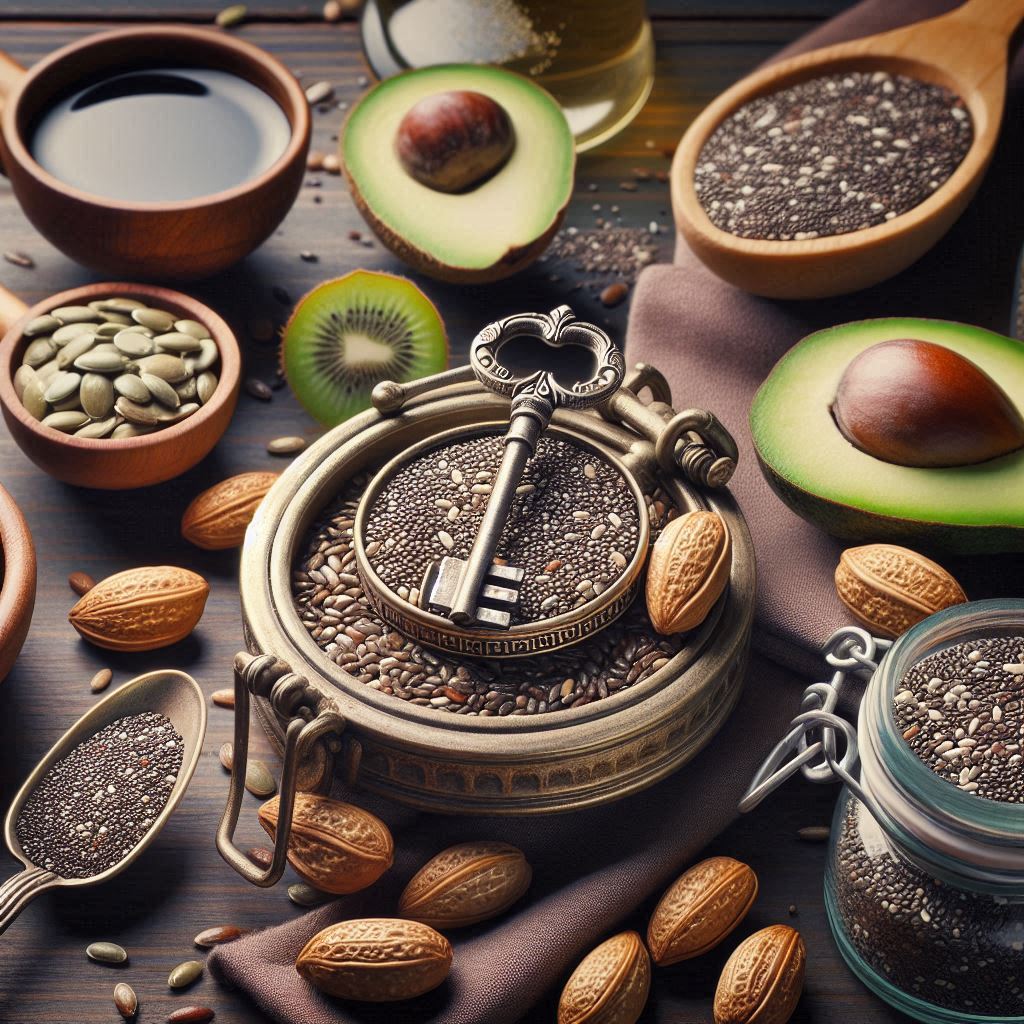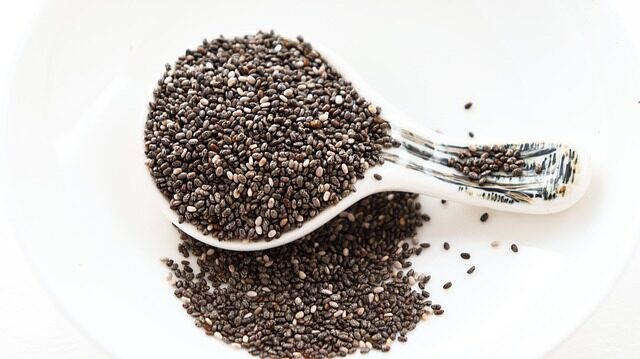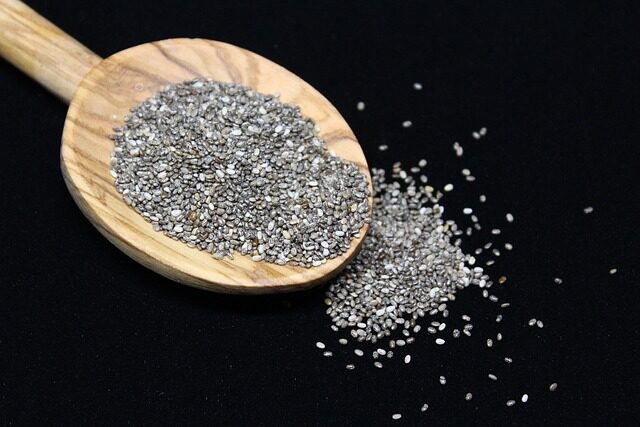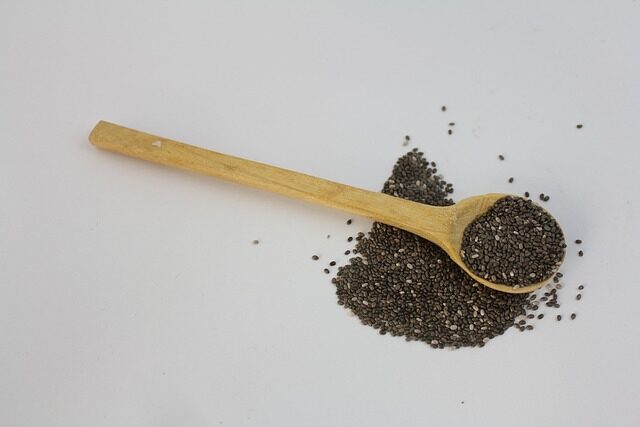Unlocking the Health Benefits of Chia Seeds

Chia seeds, tiny yet mighty, have emerged as a superfood that packs a punch well above its weight. Derived from the Salvia hispanica L. plant, these seeds are revered not just for their versatile culinary uses but also for their remarkable health benefits.
Rich in nutrients and antioxidants, the health benefits of chia seeds are diverse, ranging from enhancing digestive health to providing a boost for heart health. Let's delve into the specifics of what these seeds have to offer.
- What Are the Health Benefits of Chia Seeds?
- What Nutritional Facts Do Chia Seeds Offer?
- What Are the Potential Risks and Precautions of Chia Seeds?
- How To Incorporate Chia Seeds Into Your Diet?
- What Are the Health Benefits of Chia Seeds for Women?
- How Can Chia Seeds Aid In Weight Loss?
- What Are the Dangers of Chia Seeds?
- Exploring the Everyday Impact of Chia Seeds
What Are the Health Benefits of Chia Seeds?
Chia seeds are celebrated for their ability to provide a concentrated source of nutrients. They are high in dietary fiber, which promotes a feeling of fullness and aids in weight management. The presence of omega-3 fatty acids is significant, supporting heart health and reducing inflammation throughout the body. Additionally, the antioxidants contained in chia seeds help to combat free radicals, reducing the risk of chronic diseases such as cancer and heart disease.
Specifically, for women, chia seeds offer benefits such as hormonal balance and improved bone health due to their high calcium content. All genders can appreciate the protein, essential minerals, and vitamins that these seeds contain, making them a valuable addition to any diet.
Moreover, chia seeds are known for their versatility in the kitchen. They can be soaked to create chia pudding, sprinkled on salads, or blended into smoothies, making them an easy food to incorporate into your daily routine.
What Nutritional Facts Do Chia Seeds Offer?
An ounce of chia seeds is a nutritional powerhouse. It provides a substantial amount of protein, critical for muscle repair and growth, and fiber, essential for digestive health. On top of that, chia seeds are a rich source of minerals such as calcium, magnesium, and phosphorus, which are vital for bone health and metabolic functions.
The nutritional profile of chia seeds also includes a remarkable amount of antioxidants. These compounds are essential in protecting our cells from oxidative stress and may play a role in preventing aging and various diseases. With such a comprehensive nutrient profile, chia seeds are more than deserving of their superfood status.

What Are the Potential Risks and Precautions of Chia Seeds?
While the health benefits of chia seeds are undeniable, it is also necessary to consider potential risks and precautions. Overconsumption of chia seeds may lead to digestive issues such as bloating and gas due to their high fiber content. Individuals with swallowing difficulties should be cautious, as chia seeds can absorb significant amounts of water and expand, potentially causing a blockage.
For those on blood pressure or blood thinning medications, it’s important to consult with a healthcare provider before adding chia seeds to your diet, as the omega-3 fatty acids can have a blood-thinning effect.
How To Incorporate Chia Seeds Into Your Diet?
Incorporating chia seeds into your diet is simple and can be quite delicious. They can be sprinkled on yogurt, oatmeal, or salads for a crunchy texture. Soaking them in liquids such as almond milk or juice creates a gel-like substance, perfect for making chia puddings or as a thickener in smoothies.
Baking enthusiasts can also use chia seeds as an egg substitute in recipes by mixing one tablespoon of ground chia seeds with three tablespoons of water to replace one egg. This is not only a healthful approach but also caters to those following a vegan lifestyle.
What Are the Health Benefits of Chia Seeds for Women?
Women may find chia seeds particularly beneficial for several reasons. They are a natural source of calcium, which is essential for bone health and the prevention of osteoporosis. The balance of omega-3 and omega-6 fatty acids in chia seeds can also contribute to hormonal balance, which is crucial for women's overall health.
For those looking to conceive, the nutrients found in chia seeds are thought to play a role in reproductive health. Moreover, during pregnancy, the omega-3 fatty acids may support fetal brain development.
How Can Chia Seeds Aid In Weight Loss?
The fibrous content of chia seeds is key to their role in weight loss. When consumed, chia seeds can absorb many times their weight in water, expanding in the stomach and leading to a natural reduction in appetite. This property, combined with their high-quality protein, can reduce cravings and snacking, supporting a healthy weight loss journey.

Furthermore, the metabolism-boosting properties of chia seeds can help in burning belly fat. They can be a strategic addition to a balanced diet aimed at reducing visceral fat, which is linked to numerous health issues.
What Are the Dangers of Chia Seeds?
As with any food, chia seeds should be consumed in moderation. Excessive intake can lead to gastrointestinal issues, including constipation or diarrhea, due to their high fiber content. Those with allergies to mustard or sesame should also be cautious, as chia seeds may trigger similar allergic reactions.
It is essential to consume plenty of water when eating chia seeds, as they can absorb up to 27 times their weight in water, and failing to hydrate properly could lead to dehydration or a blockage in the esophagus or intestines.
Exploring the Everyday Impact of Chia Seeds
How much chia seeds should you eat a day?
The recommended daily intake of chia seeds is about 1 to 2 tablespoons. This is enough to reap the nutritional benefits without causing any adverse effects associated with overconsumption.
It is important to start with a smaller amount and gradually increase to the recommended serving size to allow the body to adjust to the high fiber content.
What happens when you start eating chia seeds every day?
Regular consumption of chia seeds can lead to improvements in digestive health and regularity due to their high fiber content. Additionally, you may notice an increase in energy and a more stable blood sugar level throughout the day.
Over time, the anti-inflammatory properties of omega-3 fatty acids may also contribute to improved heart health and a decrease in inflammation-related pain and discomfort.

Can chia seeds reduce belly fat?
Chia seeds can be part of an effective strategy for reducing belly fat. Their high fiber and protein content can help control hunger and reduce calorie intake. However, it should be part of a balanced diet and regular exercise regimen for the best results.
Remember, no single food is a magic bullet for weight loss, but chia seeds can certainly be a valuable component of a comprehensive weight management plan.
Here's a video to give you more insights into how chia seeds can transform your health:
In summary, the health benefits of chia seeds are extensive and can be easily harnessed by incorporating these nutritious seeds into your daily diet. Whether you’re looking to boost your nutritional intake, lose weight, or simply enjoy a new texture in your meals, chia seeds are a versatile and healthful choice that can be enjoyed in countless ways.

Leave a Reply